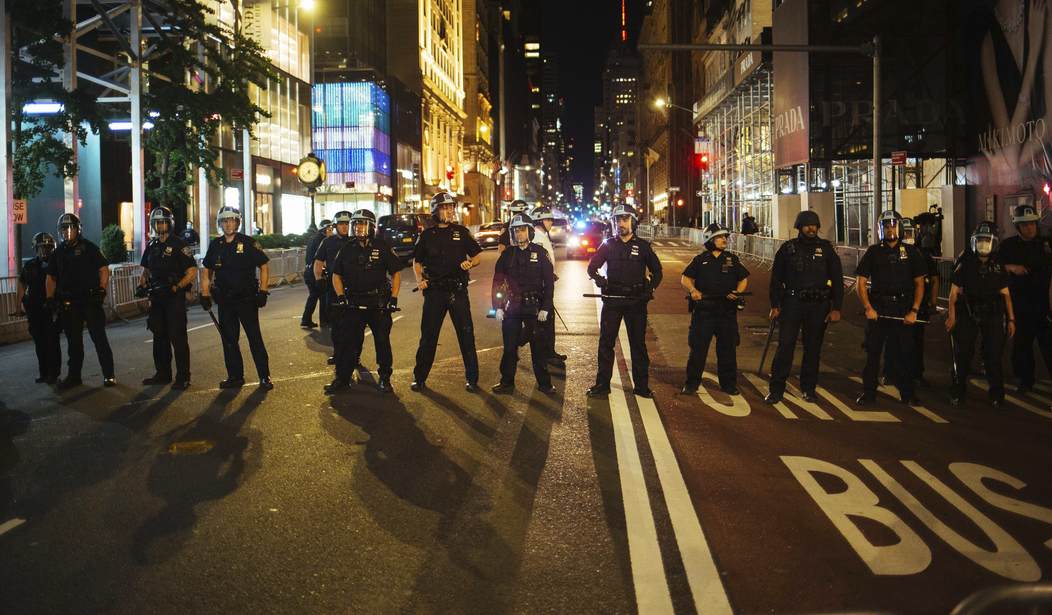Policing in the United States is overdue for reform. Admitting to this is not a matter of race, political party, or ideology. It is an observable truth, confirmed time and again by the lack of accountability in holding bad cops responsible for actions that should not be tolerated in a free country governed by the constitutional rule of law.
There are steps that the federal and state governments can and should undertake to address deficiencies in policing. Defunding the police, however, is not an idea worthy of consideration. The fact that “defund the police” is actually being seriously considered illustrates the idiocracy that has infected public debate in 21st century America.
Defunding the police because of a few bad police officers is akin to closing down hospitals as a result of an occasional malpractice incident by doctors; or closing public schools because there are some bad teachers. Such a move would solve nothing and in fact make matters incalculably worse for everyone (except perhaps for the very rich, who could afford private security services for their homes, property, and vehicles). Still, however, especially within the “Black Lives Matter” movement, the proposal lives.
Thankfully, amidst the cacophony, there are a few rational voices.
On Twitter, Washington Post columnist and noted police critic Radley Balko suggests we not get too hung up on the phrase “defund the police” as a literal objective, but rather take it as a call-to-arms for a host of sensible reforms. Balko’s approach should be garnering wide, nonpartisan appeal, but many Black Lives Matter activists still insist that the only solution is literally to get rid of police departments. “Please don’t misrepresent our demands,” Jonathan Ben-Menachem, who writes at the criminal justice news site The Appeal, replied to Balko -- “It’s not a euphemism or an analogy.”
Recommended
But advocates of this extreme measure should not be permitted to skate by without being forced to answer a host of hard questions. Who, if anyone, is to investigate crime, and what limitations, if any, would restrain them in their search and surveillance powers? Would the Constitution still apply to these New Age Peacekeepers, or would they be unrestrained by due process and equal protection of the law? In the society envisioned by Ben-Menachem, what authority would peacekeepers have to detain or incapacitate dangerous individuals – or would they be not be empowered to do so in the first instance?
Most fundamentally, what exactly is the goal for such radicalism? Perhaps, like the Bernie Sanders socialists who romanticize a future of complete economic and social equality, police abolitionists foresee a future miraculously free of crime, where community “peacekeepers” exist only to change tires and help old ladies across the street. But, just as socialists always have had to contend eventually -- people can only be made equal through government power, ultimately enforced at the end of a gun; look no further than the chaos that grips modern-day Venezuela.
Both history and human nature confirm that there are sound reasons why policing is one of the basic functions of any government. In our society, police functions are designed to be a common authority to enforce the law equally for all citizens, removing the need for vigilante mobs operating without accountability. More importantly, the Constitution and the rule of law hold police accountable within defined boundaries.
Clearly law enforcement today has in many respects fallen below a necessary high standard of neutrality and accountability. Even so, fighting for reforms beginning with ending overcriminalization, demilitarizing police, de-escalation, and limiting or ending no-knock warrants, is far preferable to a world without police.
Meaningful reform will be difficult and painstakingly slow but start we must. The “Justice in Policing Act of 2020” was introduced in Congress just this week. While not perfect, the bill includes a number of positive proposals for federal law enforcement (supplemented by grants to state and local law enforcement if they implement similar measures), including a ban on chokeholds, officer camera mandates, and limiting the immunity that far too often shields the bad cop from being held accountable. The initial bill goes off on unnecessary and costly tangents favored by liberal lawmakers, and the provision for the “use of force” standard needs to be more carefully crafted, but many of the substantive provisions are worthy of bipartisan support.
Such legislation, properly crafted, should not be viewed by Republicans in Congress or by the President as an anti-law and order bill, but one that can in fact help to “Make Law Enforcement Great Again.”

























Join the conversation as a VIP Member